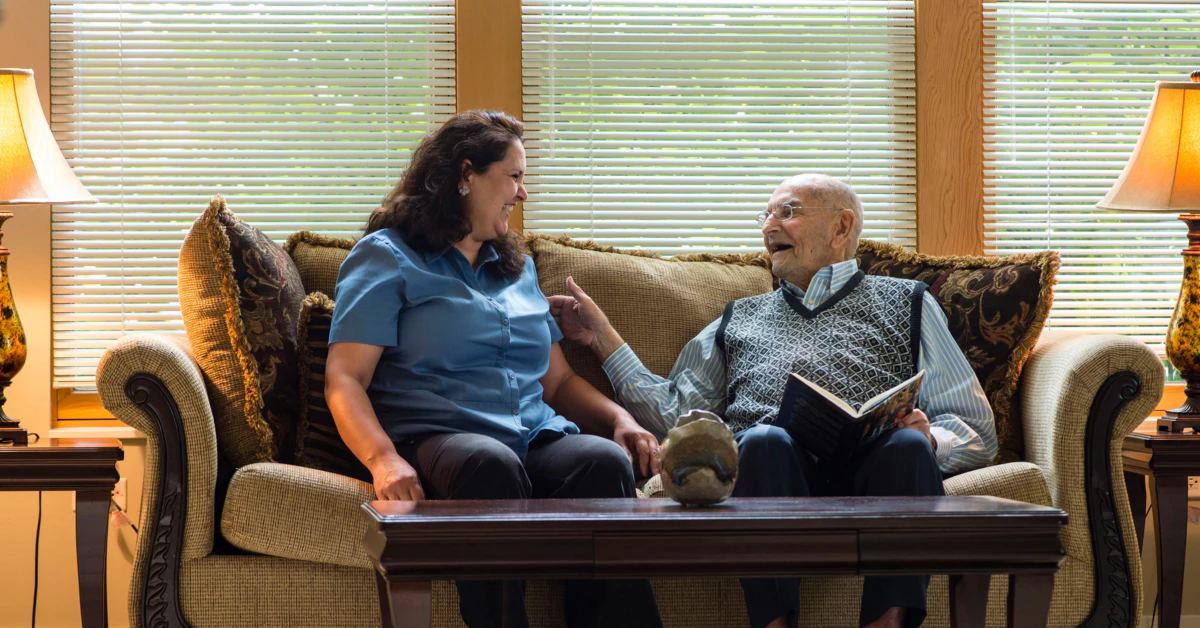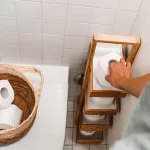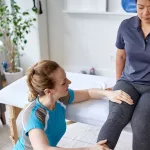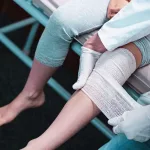Have you ever caught yourself doing something for your loved one—maybe pouring their coffee, lining up their pills, or just being there in case they lose their balance—and then, out of nowhere, the thought hits you: “Am I really helping here, or am I making things more complicated for both of us?” Trust me, you’re not alone in this little mental wrestling match. It’s like a background hum in the lives of so many families.
Let’s face it, caring for someone you love isn’t always a tidy process. It gets messy, emotional, and sometimes, downright confusing (like, what’s the actual difference between personal care and assisted living? Is there a right time to move from independent to assisted living? Is “assisted living vs senior living” even a thing, or is that just marketing jargon?).
If these questions have ever kept you up at night, or if you’ve found yourself googling “senior housing vs assisted living” at midnight, hoping to stumble on a magic answer—hey, I get it. Let’s cut through the noise together, hand-in-hand, and talk honestly about what these options really mean. Because, believe it or not, getting clear about this stuff can bring a whole lot of relief—for you and the person you care about most.
What Is Personal Care? Let’s Get Real About Daily Support
So, picture this: your mom or dad is still mostly independent. They love their routines, maybe they’re still making their own toast in the morning, but they struggle with some things—maybe it’s getting dressed, managing meds, or remembering to eat on a schedule. Personal care is like having a friendly, respectful helper for all those little things that can become big hurdles.
In most states (like Pennsylvania, for example), personal care homes focus on providing just enough support so your loved one can keep living their life with dignity. It’s not a hospital. It’s not a strict “facility.” It’s more of a community with a safety net. Staff are there to lend a hand with bathing, grooming, medication reminders, and meals. Think of it as a gentle nudge, not a takeover.
It’s not one-size-fits-all either. Some folks need help only in the morning or evening. Others might need a little more. The best places tailor support to the actual human, not just the diagnosis. And honestly, that’s what makes all the difference.
Who Thrives in Personal Care Homes?
Let’s be honest: some people just want to keep their independence but admit (sometimes grudgingly) that certain tasks are getting tricky. A personal care home can be like living with a really attentive roommate—someone who’s always there when you need them, but who respects your space when you don’t.
Here’s a story that sticks with me: my friend’s grandmother, Ruth, moved to a personal care home after she fell trying to carry her laundry. She was fiercely independent, but after the move, she actually started to thrive. She made friends, joined a book club, and let staff help her with the laundry. It was as if the right kind of help gave her back her spark.
What Makes Great Personal Care Staff?
The secret sauce? Compassion and training. Good personal care homes have team members who aren’t just clocking in—they genuinely care. They’re trained to spot changes in health, know how to handle emergencies, and, maybe most importantly, listen. You want people around your loved one who treat them with the same respect they’d give their own parents.
What Is Assisted Living? More Than Just a Helping Hand
Now, let’s talk about assisted living. If personal care is the gentle nudge, assisted living is more like a steadying hand. It’s designed for folks who need a bigger safety net—maybe they have mobility issues, need more medical oversight, or have health conditions that can shift quickly.
Assisted living blends daily care (think: help with bathing, dressing, meals) with access to medical professionals and staff who are trained to handle more complex needs. There’s usually a nurse on site, and the environment is set up to be super safe—grab bars, emergency call buttons, the works.
Is It Time for Assisted Living?
This is the tricky part, right? When do you go from “just a little help” to “okay, we need more support”? If you’re noticing that your loved one is missing medications, wandering, falling, or if their health needs have become unpredictable, assisted living might be the safer, smarter option.
Let me give you an example: my neighbor, Tom, managed perfectly on his own—until heart problems started making his days unpredictable. His family realized that just personal care wasn’t enough anymore. In assisted living, he had regular health checks, someone to spot warning signs early, and peace of mind (for him and his family).
What Sets Assisted Living Apart?
Here’s the thing: assisted living isn’t just about more help, it’s about more comprehensive help. There’s a team—nurses, aides, sometimes even physical therapists—ready to step in. The vibe is still homey and social, but with more layers of safety.
Personal Care vs. Assisted Living: The Real Differences
Okay, let’s get visual for a second. Here’s how it usually breaks down:
| Feature | Personal Care | Assisted Living |
|---|---|---|
| Level of Help | Light to moderate (basic daily tasks) | Moderate to high (daily tasks plus medical needs) |
| Medical Care | Medication reminders, basic health checks | On-site nurses, coordinated healthcare |
| Regulation | State-regulated, fewer healthcare requirements | More strict, often with medical oversight |
| Cost | Generally lower | Higher, but includes more services |
| Best For | Those needing some help, but still mostly independent | Those with health/mobility issues or unpredictable needs |
If you’re still feeling like it’s all a little blurry, that’s normal. Sometimes, the lines between personal care and assisted living overlap, especially in places where laws and terminology are different. But, generally speaking, it comes down to how much help—and what kind of help—is needed.
What About Costs and Regulations?
Let’s not dance around it: cost matters. Personal care is usually less expensive than assisted living, but not always. The price can swing based on location, level of care, and what’s included (like meals, outings, transportation). Insurance and Medicaid coverage also differ, so it’s smart to ask each provider exactly what’s covered (according KFF.org).
And about regulations—these vary by state. For example, Pennsylvania has specific rules for personal care homes vs. assisted living communities. It’s worth checking your state’s official resources or asking facilities directly for their licensing info. You don’t want surprises when it comes to the safety and rights of your loved one.
How Does This Fit With “Senior Living,” “Nursing Homes,” and More?
Let’s clear up some of the buzzwords you’ll run into. “Assisted living vs senior living”—what’s that about? Well, senior living is a broad umbrella. It covers everything from independent living (apartment-style, totally hands-off) to personal care, assisted living, and even nursing homes.
Senior Housing vs Assisted Living: What’s the Difference?
Senior housing is usually about the place—think apartments or communities for older adults, but without built-in care. Assisted living is a type of senior living, but it comes with dedicated staff, meals, help with daily tasks, and medical support. So, if all your loved one needs is a safe, social environment, senior housing could be enough. If they need more hands-on help, assisted living is the next step.
Senior Living vs Nursing Home: When Does the Shift Happen?
Here’s where it gets heavy. Nursing homes are for seniors who need 24/7 medical care—think chronic illness, advanced dementia, or serious mobility limitations. It’s a clinical environment, sometimes even hospital-like. Assisted living is a step down from this: more independence, more freedom, but still with that extra help close by.
When to Move from Independent to Assisted Living?
This is the question that keeps so many families awake at night. There’s no simple answer, but some signs are hard to ignore—frequent falls, missed medications, isolation, or just feeling overwhelmed by household chores. If safety is a concern, or if your loved one seems lonely or anxious, it might be time to have a gentle, honest chat about assisted living.
And just to share, my own uncle was fiercely against leaving his home—until a small kitchen fire (thankfully caught in time) made him realize he needed more support. The move wasn’t easy, but now he’s in a place where he’s safe, social, and, honestly, a bit less stubborn. Sometimes, a hard moment opens the door to a better life.
How to Choose: Tips for Finding the Right Fit
Let’s be real—no checklist or “top 10 list” can make this decision for you. But here are a few things I’ve learned that might make it a little easier:
- Start with your loved one’s needs. What do they struggle with? What are their biggest joys and fears?
- Visit places in person. Trust your gut and your senses. How does it smell? How do people sound when they talk to each other?
- Ask questions—lots of them. About staff, about care, about emergencies. If someone seems annoyed by your curiosity, that’s a red flag.
- Read reviews and check inspection reports. There’s wisdom in crowds, but nothing beats your own impressions.
- Don’t be afraid to ask for references or to talk to current residents and their families.
And if you’re ever feeling lost, reach out for help. There are so many support groups and professionals (social workers, elder care advisors) who can walk this path with you. You don’t have to do it alone.
Wrapping Up: You’re Not Alone in This
So, what’s the real difference between personal care and assisted living? It’s not just about levels of help or price tags. It’s about finding the right balance of independence, safety, and compassion—for your loved one, and for your own peace of mind.
Remember, you’re not just picking a building or a service. You’re choosing a community, a new chapter, maybe even a lifeline for someone you love. You owe it to yourself (and them) to ask questions, visit, trust your instincts, and keep searching until it feels right.
And hey, if you ever feel stuck or overwhelmed, take a breath. Reach out. Share your story. I promise, you’re not the only one walking this road—and together, we can find answers, courage, and maybe even a little hope.
What do you think? Have you faced this decision before? Share your thoughts or questions below—I’d love to hear your story. And if you’re still just researching, that’s okay too. One step at a time, right?


















Leave a Reply
You must be logged in to post a comment.